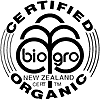Référence:IP/05/1679 Date:21/12/2005 European Community press release
Organic Food: new Regulation will improve clarity for consumers and farmers
The European Commission today adopted a proposal for a new regulation on organic production, which aims to improve clarity for both consumers and farmers. The new rules will be simpler, and will allow a certain amount of flexibility to take account of regional differences in climate and conditions. Producers of organic food will be able to choose whether or not to use the EU organic logo. If they choose not to, their products must be labelled EU-organic. At least 95 percent of the final product will have to be organic to be labelled as such. Products containing GMOs will not be able to be labelled as organic, except those containing up to 0.9 percent of GMO content through accidental contamination. Imports of organic products would be allowed, as long as they comply with EU standards or come with equivalent guarantees from the country of origin.
Mariann Fischer Boel, Commissioner for Agriculture and Rural Development, said: “It will become much easier now for consumers to recognize organic products and understand their environmental and animal welfare benefits. The current rules will be replaced by simpler, more transparent ones. They will define objectives and principles for organic production, clarify labelling rules and regulate imports, to guarantee that consumers know what they are buying and that farmers know precisely what rules to follow.”
The new regulation responds to the conclusions of the Council of October 2004 on the European Action Plan for organic food and farming (EAP) of June 2004 which provided an overall strategic vision for organic farming’s contribution to the Common Agricultural Policy. For the import regime, the new rules will apply from 1 January 2007. The new regulation is proposed to apply from 1 January 2009.
The new regulation will:
- define the objectives and principles of organic production while accounting for local conditions and stages of development,
- assure that the objectives and principles apply equally to all stages of organic livestock, aquaculture, plant and feed production as well as the production of organic foods,
- clarify the GMO rules, notably that the general GMO thresholds apply, that GMO products cannot be labelled organic and that specific thresholds for seeds can be adopted,
- render compulsory either the EU logo or - in its absence - a stylised indication ‘EU-ORGANIC’, imposing restrictions on labelling and advertising claims in order to promote the “common concept” of organic production,
- reinforce the risk-based approach and improve controls by aligning the control system to the official EU food and feed control system applying to all foods and feeds,
- improve the free circulation of organic goods by ensuring that EU rules guarantee the highest standards, reinforce the impartiality of the control system, mutual recognition of standards and reduce the room for control bodies to authorise less strict rules,
- develop permanent import rules based on direct access for fully compliant products or access based on
















